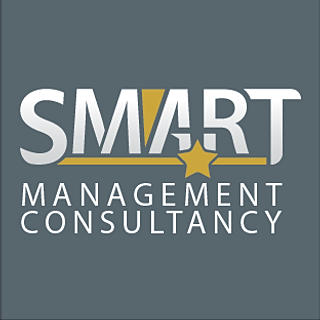Why Certification Matters in the Field of Risk Management
- Smart Management Consultancy
- Jul 10, 2025
- 4 min read
Risk management is a vital component of any thriving business. In today's complex organizational environment, understanding potential risks and handling them effectively is essential for success. As industries evolve, professionals in risk management must stay relevant. One way to do this is by obtaining certification. This blog will explore the importance of certification in the field of risk management, its benefits, and how it can bolster your career.
The Importance of Risk Certification
Risk certification demonstrates a commitment to the field of risk management. It showcases your knowledge and skills to employers, stakeholders, and clients alike. When you hold a certification, you are recognized as a professional who can identify, analyze, and mitigate risks effectively. This can give you an edge in job applications or promotions, making you a more attractive candidate.
Enhances Skill Set
Certification programs often require rigorous training and education. This process enhances your skill set and equips you with the latest methodologies in risk analysis and management. For instance, Certified Risk Management Professional (CRMP) or Project Management Professional (PMP) certifications offer frameworks and tools that are beneficial in various situations.
Boosts Credibility
Any certification signifies a standardized level of expertise. In risk management, credibility can be crucial. A certification like the Certified Risk Manager (CRM) validates your skills and can potentially increase trust among colleagues and clients. This trust is essential for fostering collaborations and leading teams in risk-sensitive projects.

Opens Opportunities
Many organizations, particularly those in finance, insurance, and healthcare, prefer or even require certified professionals. Earning a respected certification can access exclusive job opportunities and higher salary brackets. A survey by the Risk Management Society shows that certified professionals earn an average of 20% more than their non-certified counterparts.
The Process of Earning Certification
Pursuing risk certification involves several steps. Understanding these can help you prepare financially and educationally. Here are some steps to consider:
Research Programs
Before enrolling in a certification program, research the available options. Establish what suits your career goals and interests. Some certifications focus on specific sectors like healthcare or finance, while others offer a broader scope. You can explore options such as the Associate in Risk Management (ARM) or the Certified Information Systems Risk Manager (CISRM).
Pre-requisites and Preparation
Many certification bodies have prerequisites, such as work experience and educational background. Ensure you meet these requirements. Preparing for the certification exam often involves studying relevant materials, attending classes, or participating in workshops. Many online resources and study groups can also assist you.
Examination and Renewal
After completing the course, you will likely need to pass an examination. This exam tests the breadth of your knowledge in risk management. Post-certification, be aware of renewal requirements to keep your certification active. Most certifications require continuing education to stay current with industry trends.

Benefits of Certification in Risk Management
Certification has numerous advantages beyond just career advancement. Here are some of the benefits:
Networking Opportunities
Certified professionals often gain access to exclusive networks, conferences, and events. These platforms allow you to meet industry experts and peers, leading to meaningful relationships. Networking can be a powerful tool for career advancement, as it opens doors to new opportunities and collaborations.
Increased Confidence
With certification comes increased knowledge and skills, which translates into heightened confidence in your professional abilities. This self-assuredness can be advantageous when presenting ideas to management or leading teams during challenging projects.
Staying Relevant
The field of risk management continually evolves. Certification programs often update their curricula to reflect current trends and technologies. Staying certified ensures that you are aware of the latest practices and emerging risks, which can significantly impact your organization’s success.
The Impact of Risk Management on Organizations
Understanding why certification matters in risk management is key, but it's also essential to grasp how effective risk management impacts organizations. A strong risk management culture can lead to better organizational performance in several ways:
Enhanced Decision-Making
With good risk management practices, organizations can make more informed decisions. This ability to assess potential risks versus rewards leads to smarter strategic moves, ultimately driving growth and innovation.
Cost Reduction
Identifying potential risks early can lead to significant cost savings. By using the strategies learned through risk management certification, professionals can implement measures that navigate organizations away from potential financial pitfalls.
Improved Regulatory Compliance
Many industries face strict regulatory environments. Certified risk management professionals play a critical role in ensuring compliance with these rules. Better compliance reduces the risk of penalties and enhances an organization's reputation.

Taking the Next Step in Your Career
If you are contemplating certification, step back to evaluate your career goals and aspirations. Do you want to rise within your organization or pivot to a new industry? A risk management certification can be a strategic move that propels you further.
Actionable Recommendations
Here are some steps you can take to get started on your certification journey:
Set Clear Goals
Outline your career objectives. What role do you aspire to? Knowing your end goal will help you select the most relevant certification.
Create a Study Plan
Allocate dedicated time to study. Use various resources such as online courses, textbooks, or professional study aids to prepare for the exam.
Engage with Mentors
Seek out experienced professionals in your field. Their insights can provide invaluable guidance on the certification process and its impact on your career.
Moving Forward
In a world where uncertainty is commonplace, acquiring a risk management certification is an investment in your future. It's not just about proving your knowledge; it's about enhancing your skills and expanding your professional network. With the right certification, you can advance your career and make a positive impact on your organization.
By embracing the principles of risk management and pursuing certification, you position yourself to tackle the challenges of today’s ever-evolving business landscape—ultimately leading to a successful career in this critical field.















Comments